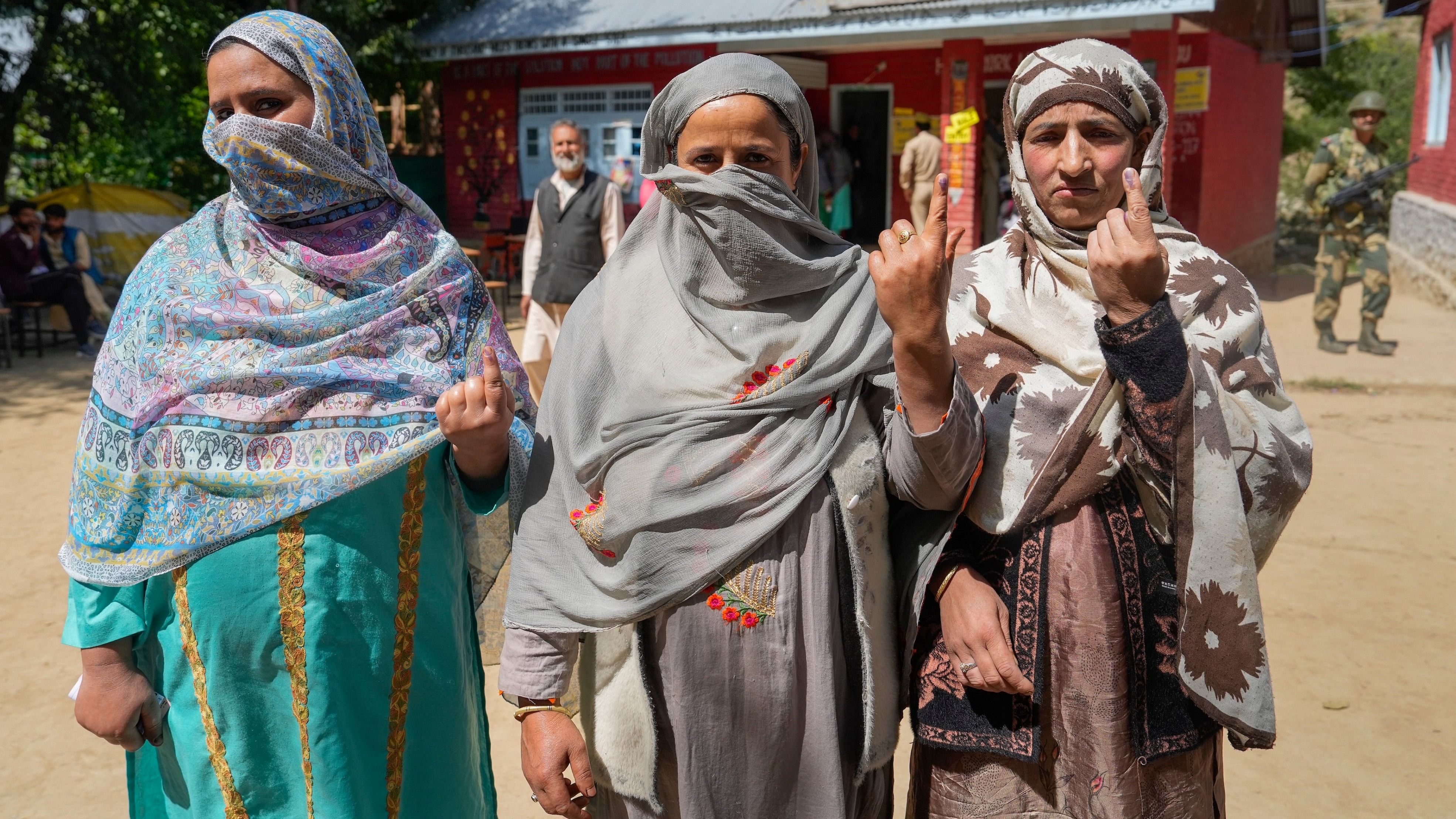
Women show their inked fingers after casting their votes during the first phase of Jammu and Kashmir Assembly elections, at Gadool area in Anantnag district, J&K, Wednesday, Sept. 18, 2024.
PTI
Pulwama (J&K): As polling percentage continues to rise in elections, many Kashmiris view voting as a critical way to express their resentment toward the decisions made on August 5, 2019, which revoked the region's special status under Article 370.
The election, many see, as an opportunity to push back against what they perceive as encroachments on their rights and identity.
“By voting, we want to show that the revocation of Article 370 was undemocratic and unilateral, an insult to our identity and rights as Kashmiris,” Bilal Wani, a resident of southern Pulwama district told DH.
Wani, who voted for the first time on Wednesday during the first phase of the assembly election, said, “Our votes are our voices. They signal that we reject the unilateral decisions made without our consent and stand for our dignity and democracy.”
Maira Khan, a college student in the area, while giving reasons for voting, said she doesn’t know what the new government can do, “but at least we will have someone to approach.”
From the Lok Sabha election held in April and May this year till the ongoing assembly polls, Kashmir based political parties, including the National Conference and PDP, have been actively encouraging voter participation as they have promised to fight for full statehood and the restoration of the region’s special status.
Political experts acknowledge that many Kashmiris see voting as a means to register their protest and prevent the BJP from coming to power in the only Muslim majority region in the country.
Siddiq Wahid, an academic and political analyst, highlighted that the primary motivation behind the increased voter turnout in Kashmir is the collective desire to prevent the BJP from gaining power in the region.
“This was evident during the recent parliamentary elections," he said, warning that the BJP could benefit if votes are divided among various Kashmiri parties, especially with many new parties and independents competing this time.
The BJP has faced accusations of supporting independent candidates to fragment the vote, potentially undermining the opposition. A record 145 independent candidates have registered for the first two phases of the election. However, the BJP has denied these claims.
While the party is not expected to perform well in Kashmir, where it has fielded candidates for only 19 of the 47 seats, it aims to secure a majority in Jammu, where it is contesting all 43 seats.